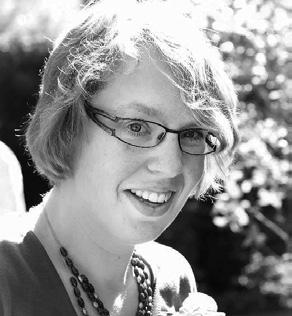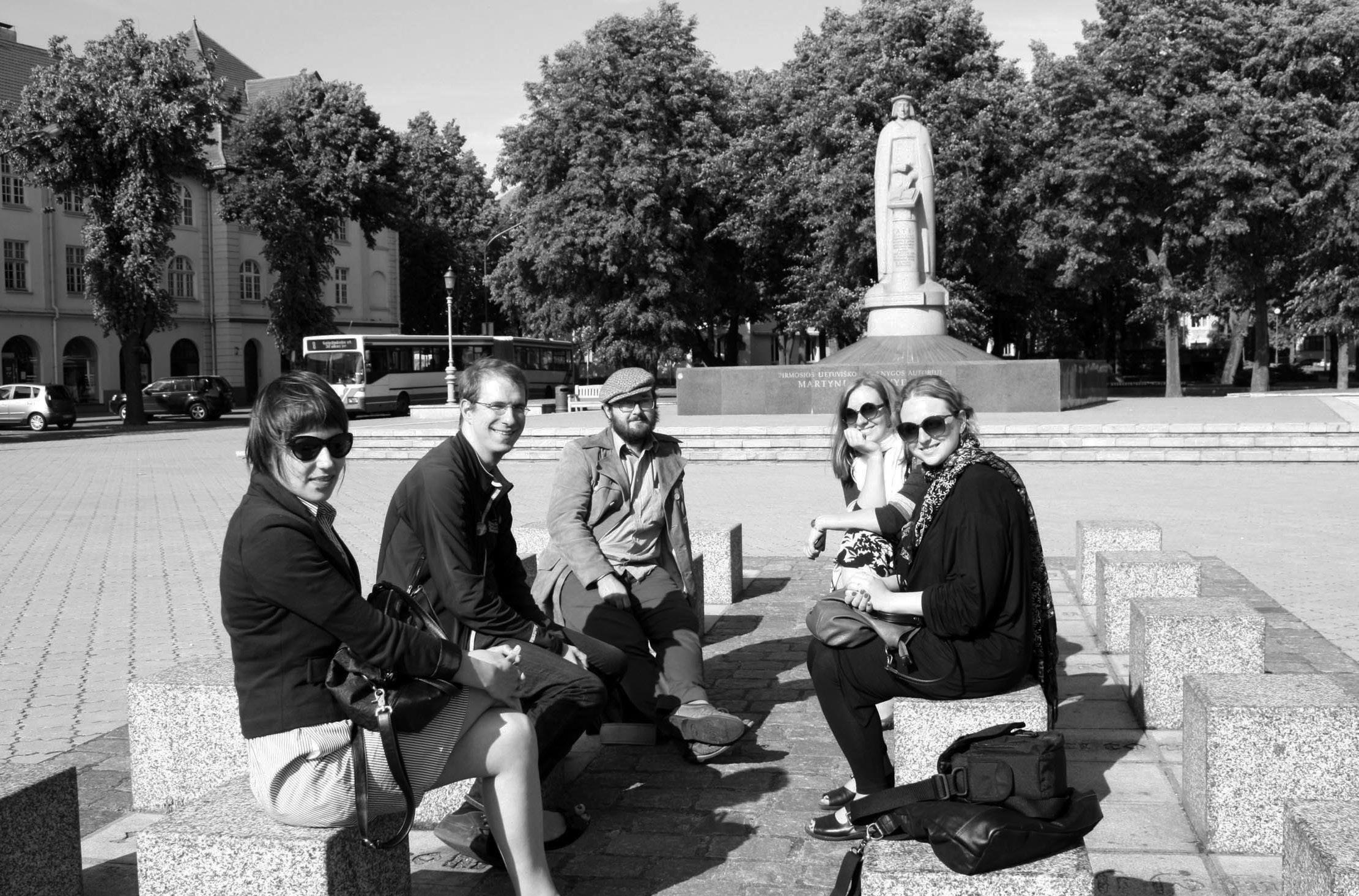
7 minute read
My way to change the world
A reflection on WSCF-Europe and Lithuanian Evangelical Lutheran Youth meeting in Klaipeda, 14-17. June 2013
It was an incredibly cold and drizzly Friday when we met WSCF-E staff members Hans Hommens and Miro Pastorek together with Libby Lewin, WSCF-E Treasurer at a cozy port hostel. Although planned as a larger NordicBaltic region conference, the event turned out to be smaller than we had originally thought. The meeting was as homely as the venue; apart from the WSCF team there were only six members of the Lithuanian Evangelical Lutherans. Although the event took place at scenic Klaipeda city, there was not much time for sightseeing. The hours ran away like crazy and we had to plan days strictly to get the most out of our meeting.
Advertisement
We had so many things to discuss together. To begin with, we had an intensive talk about the work of Lithuanian Evangelical Lutheran youth organizations (Vilnius Evangelical Lutheran Academic Youth Fellowship and Lithuanian Evangelical Lutheran Church Youth Centre). Non-governmental organizations like this usually differ from each other not only throughout Europe, but also within countries. Lithuania is no exception. At the meeting we tried to explore all the differences between the Lutheran youth organizations – the way we work, pray, attract new members, organize various events... What is more, we also tried to explore the current financial situation, our partnership with other youth organizations and opportunities to strengthen our cooperation with WSCF-E.
We take pride in being involved with WSCF-E for nearly 20 years. It‘s good to be a veteran. Last, but not least, we viewed a presentation of WSCF-E’s work, their regional structures and future plans. An exciting opportunity for Lithuania to provide a candidate for the European Regional Committee election was also discussed.
It would be remiss of me not to mention one of WSCFE’s latest projects: Lithuania-Georgia SCM exchange. During this project, two people from each country will have an opportunity to visit their respective countries for a weekend and participate in everyday SCM’ers work, to explore the way another SCM deals with its dayto-day problems and gain some new experiences.
These few days of our meeting disappeared in a flash. We all came back home full of new ideas, hopes and a willingness to get more involved into our SCM work. And change the world….in our own small way!
It’s hard to review everything that was discussed; overall, the best thing was how enthusiastic WSCF was about our SCM in Lithuania and what incredible events and conferences they organize. When you start to get involved in it, you just can’t stop- it’s just amazing!
Close and warm communication in a small group was a key factor in getting to know each other and also the differences and similarities of our communities. It was the first time the guests visited Lithuania and it seemed that they were really interested in Lithuanian youth work, our SCM structure and communications with the other Lithuanian SCMs. I also found it important that we tried to find answers on how to strengthen the cooperation between WSCF and our youth organizations. We considered how to share information about WSCF-E among SCM members in Lithuania.
– Agne, who participated in the meeting �
Lina Leonavičiūtė lives in Vilnius, Lithuania. She pursues a Master degree in Public Administration.
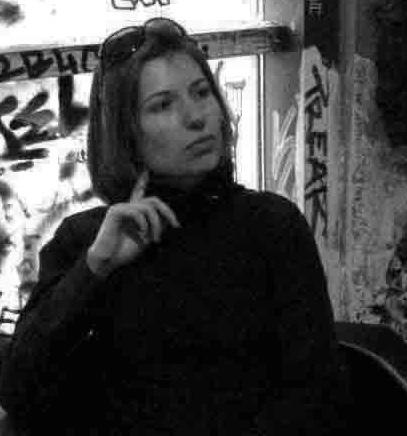
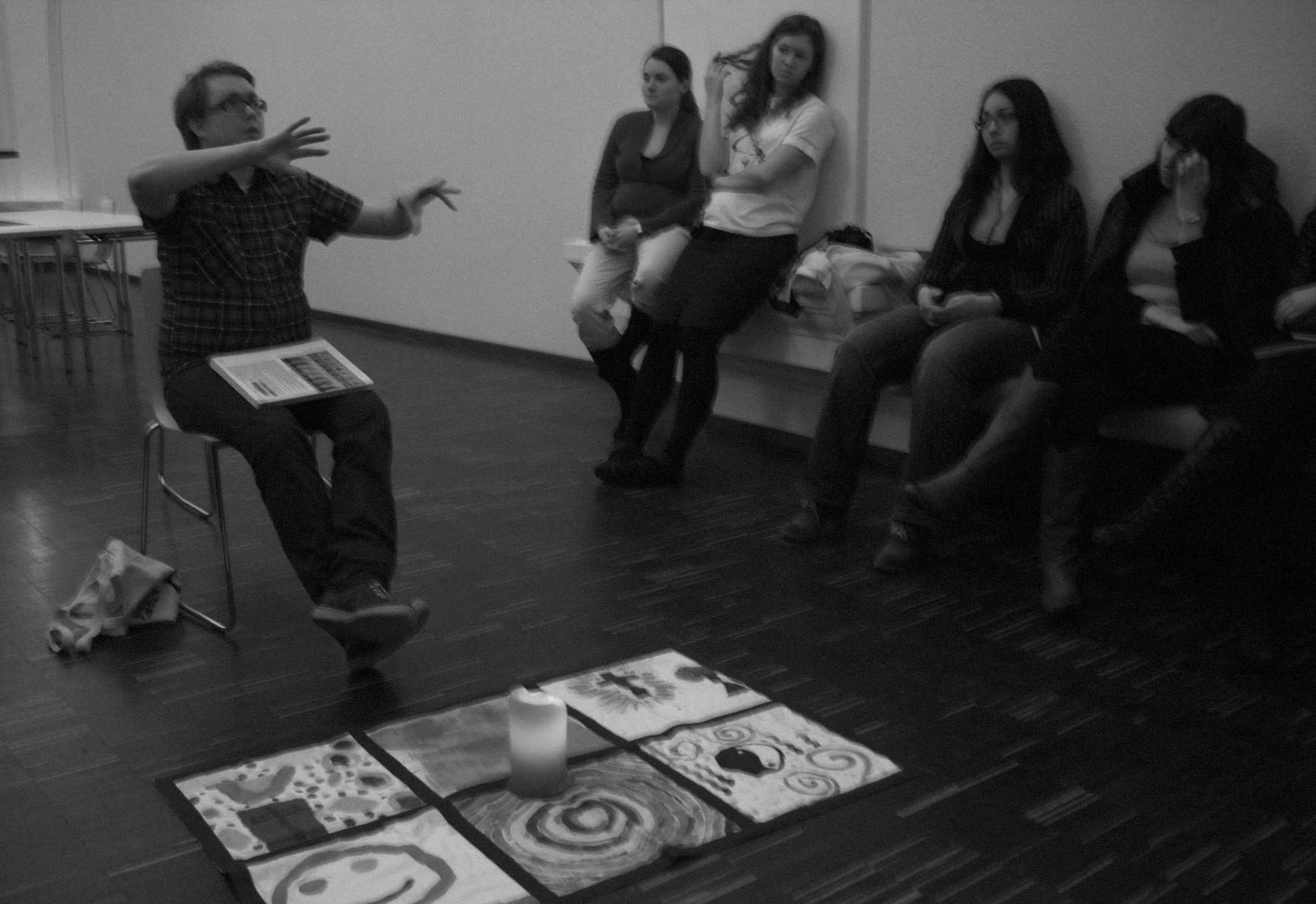
This is a report of the World Student Christian Federation Staff and Officers meeting that I attended in my capacity as Student Pastor. It focuses mainly on my personal experiences during this meeting and concludes with some preliminary observations and questions. The meeting was held 21-24 February 2013 in Vienna, Austria. Participants came from various countries in Europe: Denmark, Austria, Poland, Lithuania, Georgia and Italy among others.
Two encounters: Lela and Zosia
When I opened the door of the room of the hostel we were staying in, Lela was the first participant I met. She is from a country I can but scarcely find on the map: Georgia. But it is soon apparent that she is much more worldly-wise than I. Barely two sentences into our conversation, she tells me that she studies in Budapest with a Dutch professor. As I know only one Dutch professor in Budapest, the personal connection is easily made. Lela is doing a Masters degree in Missiology and Contextual Theology with the Central and Eastern European Institute for Mission Studies in Károli Gáspár Reformed University. Studying in a Reformed university, she focuses, as an Orthodox Christian, on questions of women in mission in her own context. In Georgian society, 85% of the population belong to the Orthodox Church and the church has a patriarchal hierarchy firmly in place.
Later in the weekend I truly discover what a bright and talented woman she is. Her questions are sharp and to the point. She has no problem translating abstract academic, theological theories to her own particular context. I learn that she is part of a Student Christian Movement in Georgia, called Young Christians for Peace and Democracy. Their international outlook and emphasis on inter-religious dialogue is hugely controversial in a religious climate where the Georgian Orthodox Church promotes an inward-looking and isolating policy.1
“We do nothing without (the blessing of) the Bishop”; Zosia, one of the Polish students tells us in her report about the Polish Student Christian Movement. I look on with amazement with some of the students and staff members from Western European countries and whisper under my breath: “I feel very, very secular right now”.
The situation in Poland couldn’t be more different from that in Georgia (or from the one in my own country). The Student Christian Movement there, the Fellowship of Orthodox Youth in Poland, is firmly linked to the (Orthodox) Church, one of the minority churches in Poland. They are very active in social outreach and community building (all with the blessing of the Bishop!) yet possess little of the critical attitudes of (for instance) the Georgian student seems to express.
But still, these two female students came to an international meeting, representing their student movements and interacted with students from different Christian denominations. They spoke openly about issues like gender, justice and what it means to live out your Christian faith while being a student in a university.
Empowering students: WSCF Staff and Officers’ meeting
The World Student Christian Federation is providing space and opportunities for students like Lela and Zosia to meet each other. A world-wide organization grounded in ecumenical dialogue, its main aim is to connect students from different Christian backgrounds to facilitate discussion on issues like gender, justice, solidarity and advocacy, culture, higher education and theology. The grassroots Student Christian Movements (SCMs for short) span from Lithuania and Georgia in the east and from Italy to Ireland in the west, totalling 21 in all.
1 (For more information: https://www.facebook.com/groups/113071960445/)
They are each either affiliated or associated members of WSCF-Europe.
What I witnessed most of all in this meeting of SCM leaders from different countries, is the difference WSCF can make in empowering these students. A significant part of the weekend was dedicated to training sessions such as ‘working together as a board’ or ‘what to do if your SCM is in crisis’.
I was fortunate to serve in a pastoral role during this Staff and Officers meeting (and quickly received the nickname of ‘Super Friend’!). I also facilitated a smallgroup discussion on fund-raising. It was encouraging to see students learning from each other and thinking about what potential and value their organizations bring to the societies in which they live and the churches to which they are connected. It was good to see students growing in confidence and vision over the course of a mere weekend.
Final reflections: open your eyes
My experience has left me with some questions and observations. First of all, I became hugely aware how very privileged I was as a student in the Netherlands (Dutch students generally are, in my opinion) and how unaware I was of the situations experienced by some students in other parts of Europe. Without wanting to stress this too much, one of the reasons so few Dutch students are passionate about topics like social justice, equality and gender might have something to do with the state of our very secular and consumerist society.
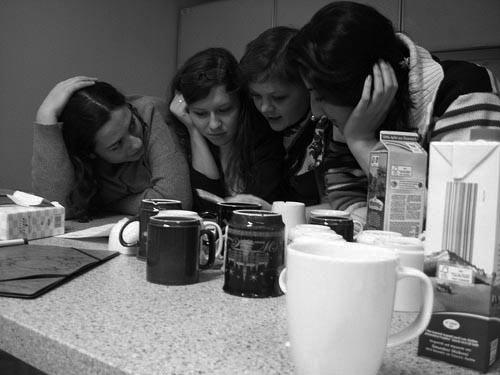
Secondly, I question whether I, as a Dutch student chaplain or our church has a duty of care or responsibility towards WSCF or towards students studying in places in Europe that we might not be able to locate without the aid of a map?
Let me try and answer this question with a final story of what I experienced during the Vienna Meeting. As I was saying my goodbyes at the end of the weekend, I found myself in a final conversation with Elfa. She is from Armenia, leading her Student Christian Movement there. During the weekend I heard her stories about how little attention the student movement is given by the congregation of the Armenian Orthodox Church (to which they are linked). During the weekend the group tried to come up with strategies to help her highlight the importance and value of her movement.
As she is studying Choir Direction at a conservatory, Elfa also proved to be a great help with the singing during worship times. When I said goodbye to her, she took off her necklace and offered me the little silver booklet that hung on it. I asked her if she was sure she wanted me to have it and when she said she was, I could not but accept it. It provided me with some food for thought and I concluded that at least for her, it was important that I was there. Perhaps in some small way I served as a role model. She probably did not realise how much her drive and openness (and her ability to burst into a Christmas song in the snowy streets of Vienna!) inspired me too.
So yes, I do think that we as ‘Western European’ chaplains and churches need to open our eyes to the fact that not all of Europe is ‘a first world country’ (as one of the students put it). Some students live in societies where their voices in support of justice, equality and peace are greatly needed. Empowering these students, the Christian leaders of the future, should be our concern as well if we really care about the future of Europe and the Christians of the next generation.

NB The names of the students are not their real names, for reasons of confidentiality. �
Annelies van de Steeg is an (Anglican) part-time chaplain for international students in Utrecht, Netherlands. She also works as a pastoral counselor (for slightly older people). In 2006, she graduated from Utrecht University with a Master’s in Biblical Studies and a year later she completed her vocational training. When not working, she likes to spend her time on friends and family, outdoor activities, reading and singing.
